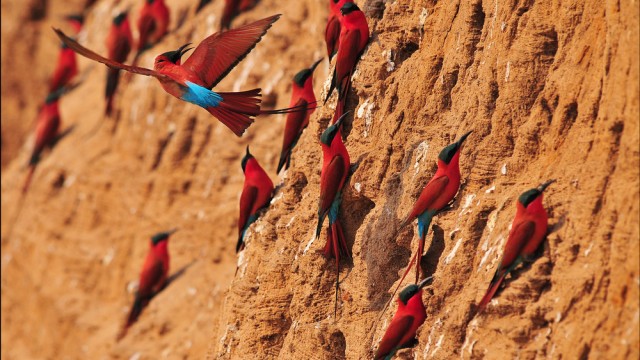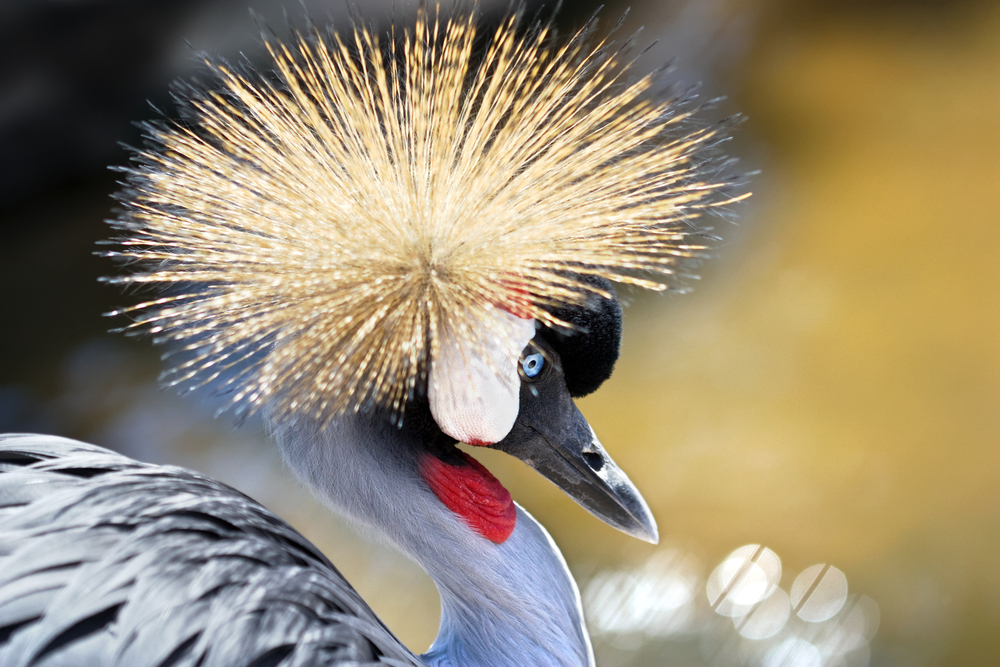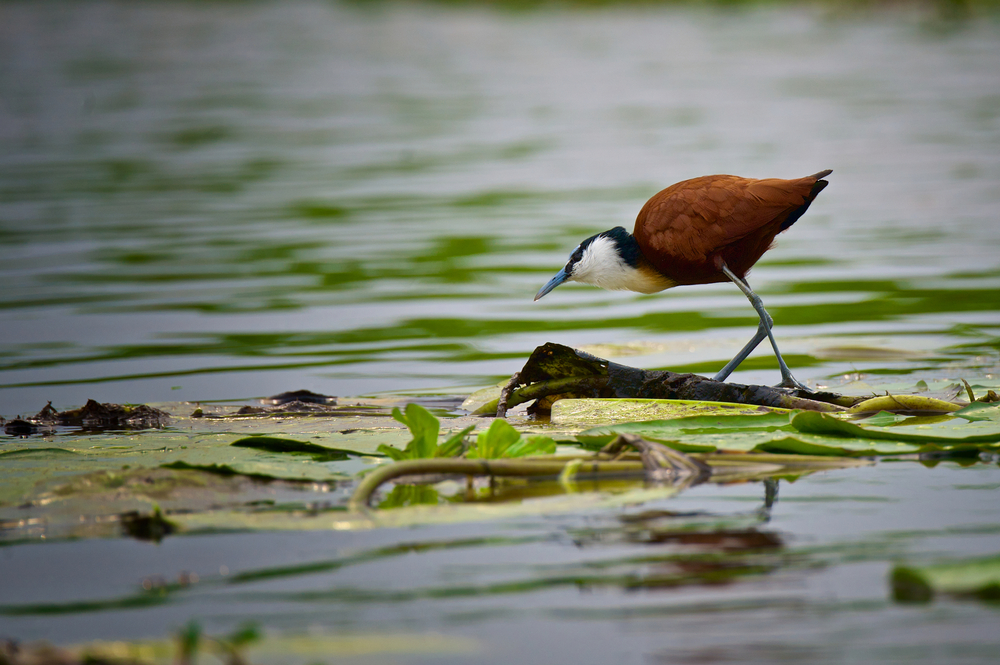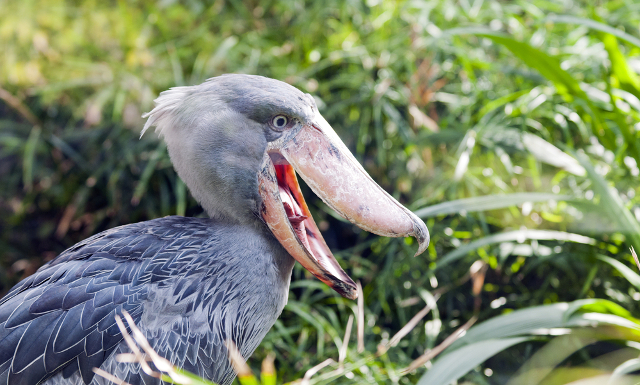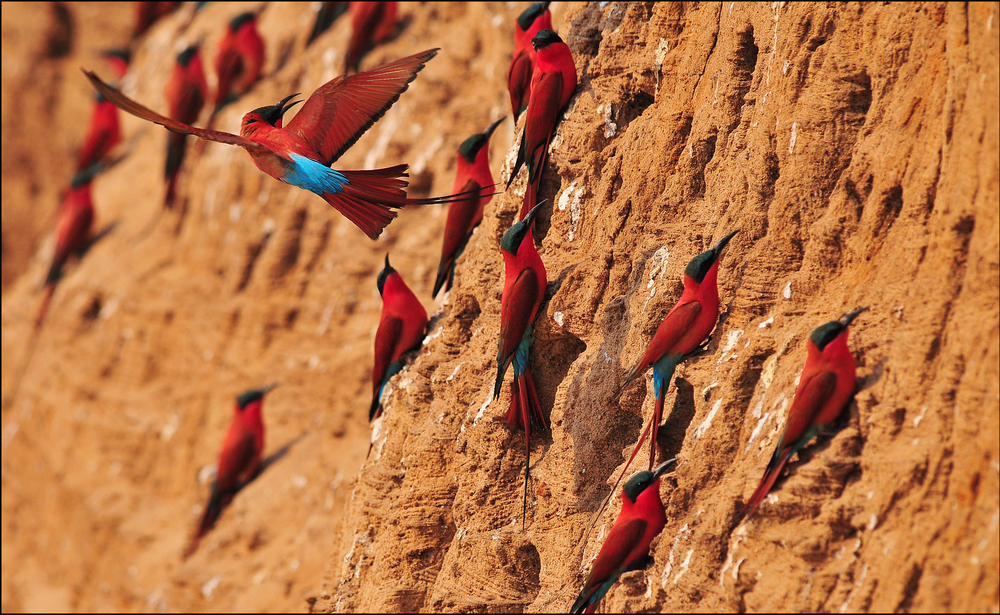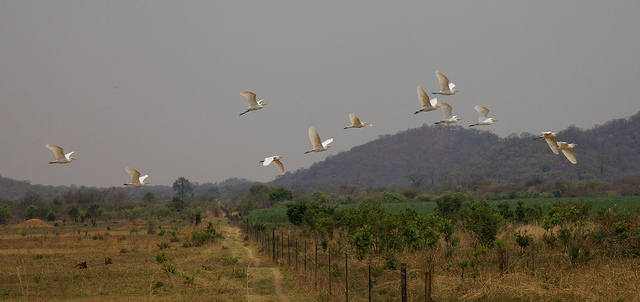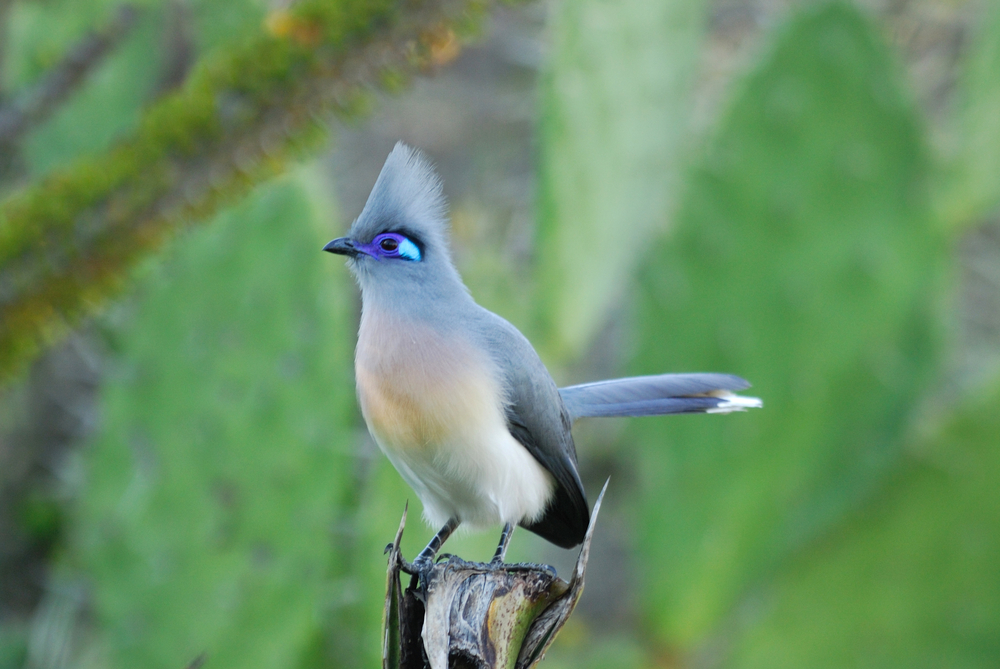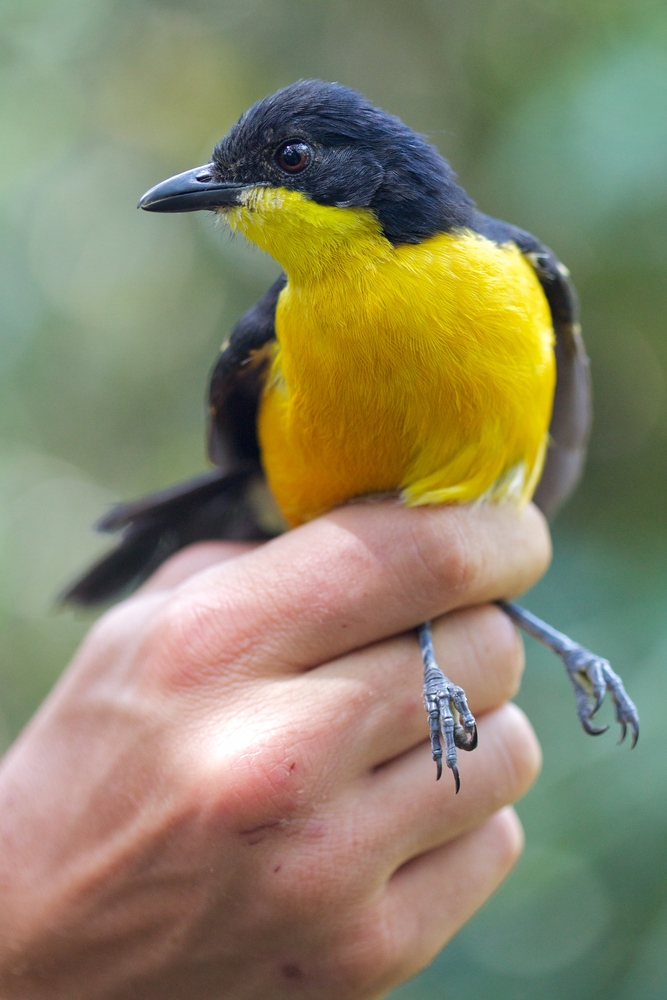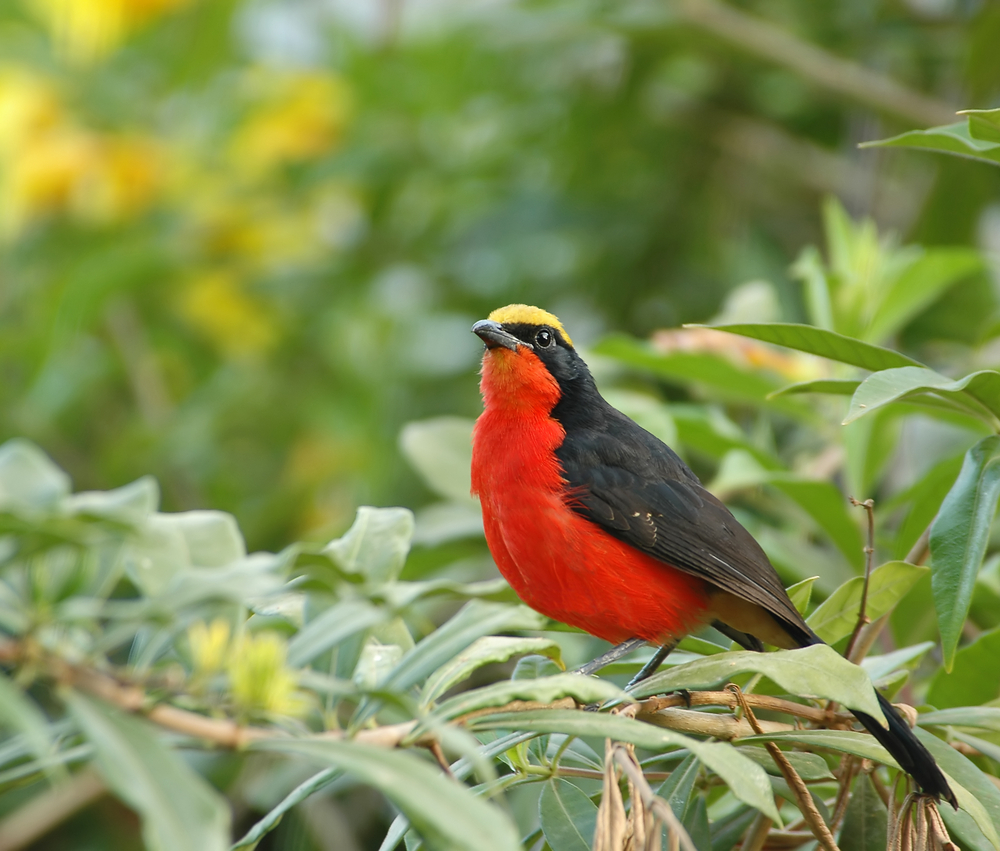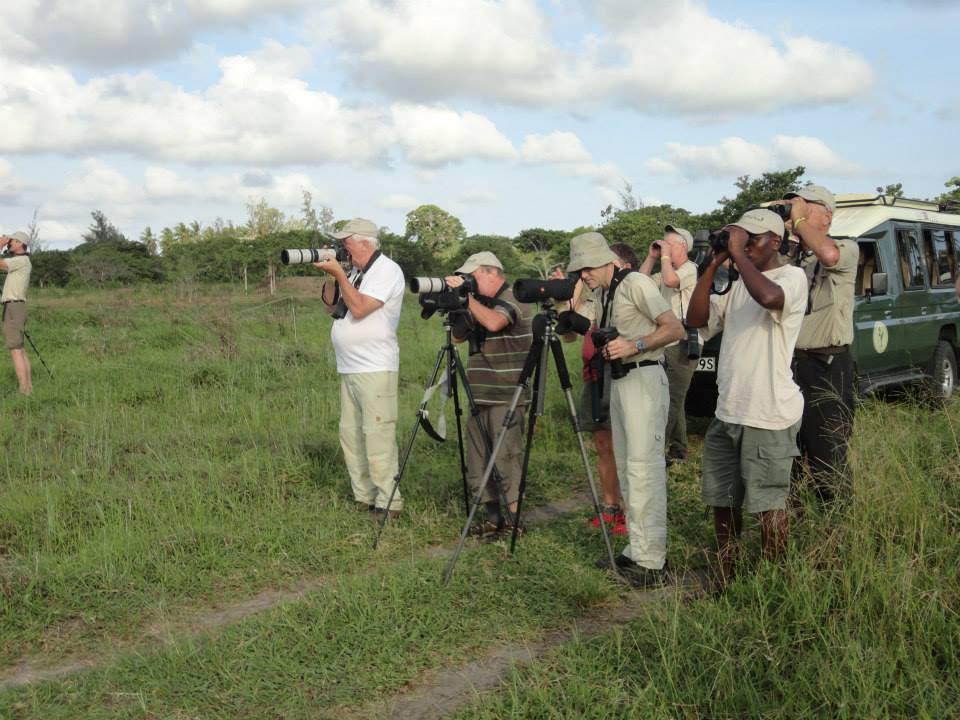Africa’s exotic mammals get a lot of attention — as they should, but the continent is also home to thousands upon thousands of lovely feathered creatures who also deserve a bit of the spotlight. Over 2,500 bird species can be found on the continent, often in the same places as their mammal brethren. The “green season” months (mid-November through March) are the best for birding in Africa. It’s this time of year when many local birds are in full breeding plumage.
As you dig into the following list, bear in mind that on a continent the size of Africa there are of course hundreds of other great bird watching locales, so consider this just the tip of the iceberg. So without further ado, here are our recommendations on where to go bird watching in Africa.
Kruger National Park, South Africa
South Africa is famous for its Big Five game animals, but did you know it also has a Big Six for birds? They are the southern ground hornbill, Pel’s fishing-owl, the lappetfaced vulture, the saddle-billed stork, the martial eagle and the kori bustard. And all can be found at Kruger National Park in South Africa, which is home to more than 500 bird species. Other highlights include the ostrich, the secretary bird, and the glossy starling. Twitchers will want to stay a couple of days to take it all in. The park makes it easy, with numerous types of accommodation to suit all budgets.
Cape Town, South Africa
The unique Cape ecosystem is home to over 150 mostly-endemic species, including the endangered South African penguin (which can be found at Boulders Beach or Stony Point in Betty’s Bay), ostriches, Protea Seedeaters, Cape Rock-jumpers, Cape Sugarbirds, Orange-breasted Sunbirds, and Victorin’s Warblers. There is a highly-developed birding tour industry here, so it’s a breeze to find a tour to jump on.
Bwindi Impenetrable National Park, Uganda
Bwindi is located in southwestern Uganda and has the highest number of different animal species in East Africa. The park is home to hundreds of different types of mammals, reptiles, butterflies and birds. Some rare birds include the Grauer’s swamp warbler, forest ground thrush, and the African green broadbill.
The Mabamba Wetland, Uganda
The Mabamba Wetland runs along the shores of Lake Victoria in Uganda and is also home to many hard-to-find bird species like the shoebill stork and the lesser Jacana. The shoebill, a huge, awkward-looking bird, is so unique that scientists have contemplated putting it in its own order.
Murchison Falls National Park, Uganda
This bird-lover’s treasure trove sits in the northwestern corner of Uganda. One area that draws a particularly high number of the feathered creatures is Lake Albert, where astute observers can see more than 450 species of birds including the martial eagle, the lesser flamingo, the shoebill, and the papyrus gonolek.
South Luangwa National Park, Uganda
This park in Eastern Uganda is home to around 400 of the country’s 732 bird species. Almost 40 of those are birds of prey and almost 50 are migrant species like the Steppe eagle and the Steppe buzzard from Russia. Rare birds that live here include the gray crowned-crane, the ground hornbill and Heuglin’s robin
Lake Nakuru National Park, Kenya
You may have seen Lake Nakuru’s flamingoes in pictures or in the movie “Out of Africa,” but there’s nothing like seeing them in person. Hearing their raucous sounds and watching them strut around almost comically is a once-in-a-lifetime experience. Lake Nakuru National Park, which is just south of the town of Nakuru, offers a public campsite just inside the main gate, which is perfect for birders who want to stay a while.
Kafue National Park, Zambia
Zambia is sort of obscure as far as African countries are concerned, but it’s rich in birdlife. Especially Kafue, which is home to more than 500 bird species. The wide range of natural habitats in the park make it an easy place for almost every type of Zambian bird to nest. Here visitors can spot the rare wattled crane and the Chaplin’s barbet, along with the black-cheeked lovebird, the Pel’s fishing owl, the African finfoot and the Bohm’s bee eaters.
Madagascar
One cannot write about birding in Africa without mentioning Madagascar. Since the mysterious offshore island has been separate from the continent of Africa for millions of years, many unique endemic species have evolved and thrived in isolation. In fact, 90% of species here are found nowhere else in the world. And though the quantity of species is relatively small, the quality and diversity is huge. Keep your eyes peeled for the ground-roller, the blue-billed Helmet Vanga, and the Sifaka in places like Ankarafantsika Nature Reserve, Ranomafana National Park, and Ifaty Forest.
Cameroon
Arguably the best West African country for twitching, Cameroon’s wide range of terrain ensures that you’ll see a huge variety of species. The forests, mountains, lakes, desert, and shoreline are home to a whopping 900 types of bird, many of them endemic, including the Black-casqued Hornbill, Schlegel’s Francolin, the White-faced Whistling Duck, the Great Blue Turaco and the Yellow-breasted Boubou. Hotspots include Mbam Djerem National Park, Waza National Park, Mount Cameroon, Banyang Mbo Wildlife Sanctuary, Korup National Park and Lake Maga. Obviously you’ll want to decide if you prefer to view migratory shore birds, mountain birds, or forest birds before you settle on an excursion, but if you stay in the country for at least a couple of weeks, you’ll be able to cover a lot of territory.
Ghana
The wetlands and coastal savannah around the Lotor River, in the far east of Ghana, are one of Ghana’s birdwatching hotspots. The area is best explored by floating peacefully down the river in a canoe, through the Xavi Bird Sanctuary. Guides can help spot the 90-odd different species, including pygmy kingfisher, emerald cuckoo, Senegal parrot, and yellow-crowned gonolek. Even if you aren’t interested in birds it’s a wonderful trip, and ends at an impressive stand of 60 baobab trees.
Tours
Unless you’re a repeat visitor to Africa or have a local contact, it’s best to go birding with a reputable tour outfitter. They know all the best spots and will be able to offer expert commentary and advice.
- Norman Carr Safaris: For an in-depth experience of Zambia’s South Luangwa National Park, sign up for the Green Season Birding Safari. Safari leaders teach guests how to listen for bird calls, as well as give lessons on the physiology, behavior and distribution of birds.
- Madagascar Natural Tours: Jenita Jaozandry is a native of Madagascar and has almost a decade of experience leading birdwatching trips all around the island. (destinordvoyage@yahoo.fr)
- Ghana Expeditions: This Xavi-based company offers trips down the Lotor River, through the bird sanctuary. Since they are located right on the Togo border, travelers in Lome can also easily access this tour.
- Lawson’s, Birding, Wildlife and Custom Safaris: Since 1990 this company has offered private small-group birdwatching trips throughout South Africa and parts of Zambia.
Julia Austin contributed to this article.
